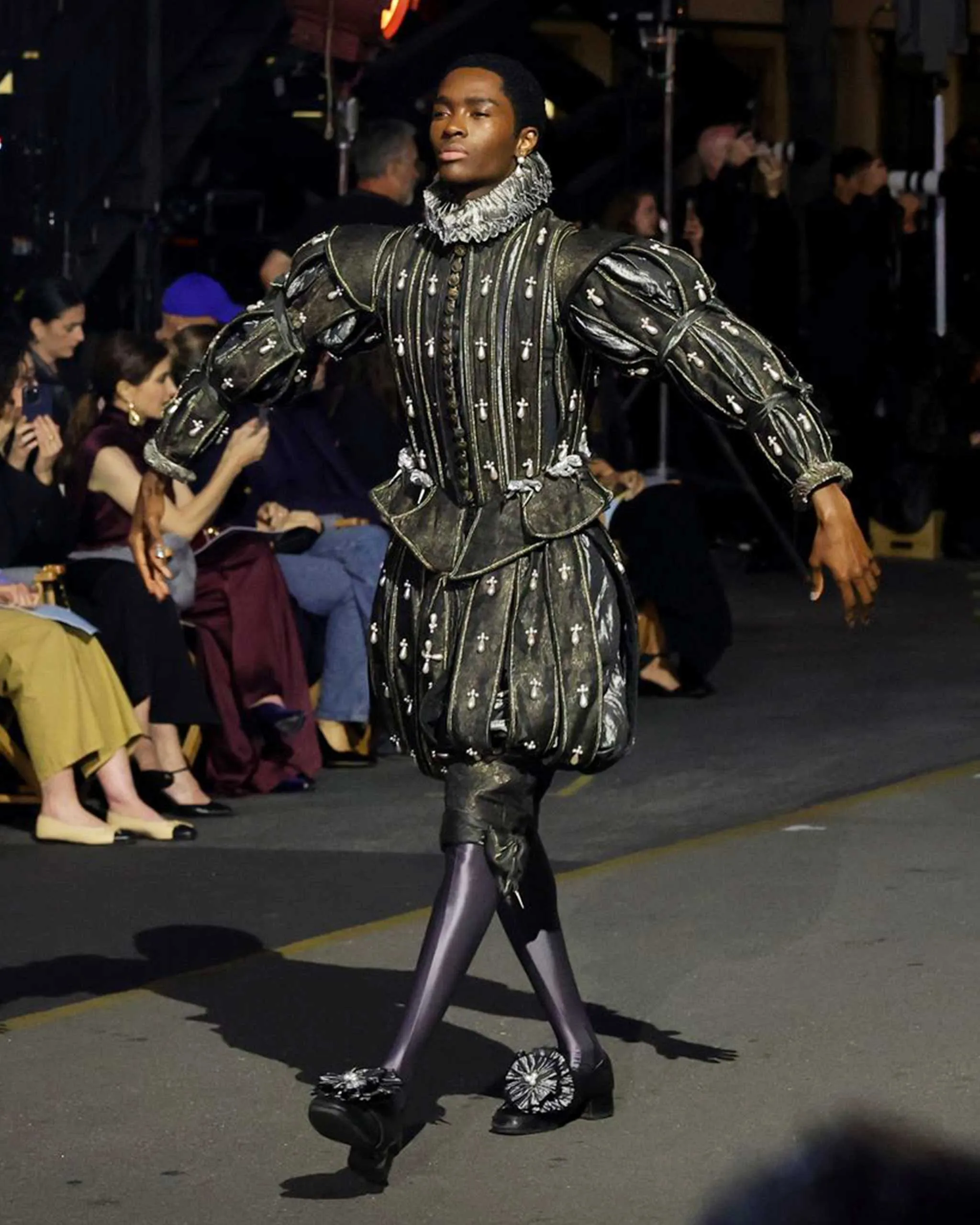Photo: Getty Images
Alton Mason in a costume designed by Sandy Powell for Orlando.
Sandy Powell revisited Orlando through a modern lens at Vogue World: Hollywood, transforming Virginia Woolf’s meditation on gender and identity into living theatre.
More than three decades after its release, Orlando continues to captivate audiences and inspire the arts beyond the screen, resonating like a living, non-binary philosophy. Directed by Sally Potter and adapted from Virginia Woolf’s 1928 novel, the film follows its immortal protagonist, Tilda Swinton, across 400 years of English history, transforming from a nobleman to a noblewoman while breaking the fourth wall. At its heart lies a question that continues to preoccupy both literature and fashion: how does what we wear shape who we are?
At Vogue World: Hollywood, this question was revisited in the “Avant-Garde” chapter, curated by Orlando’s costume designer Sandy Powell. The segment brought Woolf’s vision of fluid identity to life through a collection of costumes and looks by designers including Demna, Nicolas Ghesquière, Dries Van Noten, and Alessandro Michele. Actress Hunter Schafer opened the tableau in one of the original costumes from the film, while Jeff Goldblum strutted in a silver and electric-blue Gucci power jacket, echoing the glam-rock energy of Powell’s work for Velvet Goldmine. Closing the sequence, Alex Consani appeared in a Valentino haute couture reinterpretation of the opening look: a cream Shakespearean blouse with ruffled sleeves, a bridle leather corset, juniper-green and pearl bloomers, and a dramatic capelet.
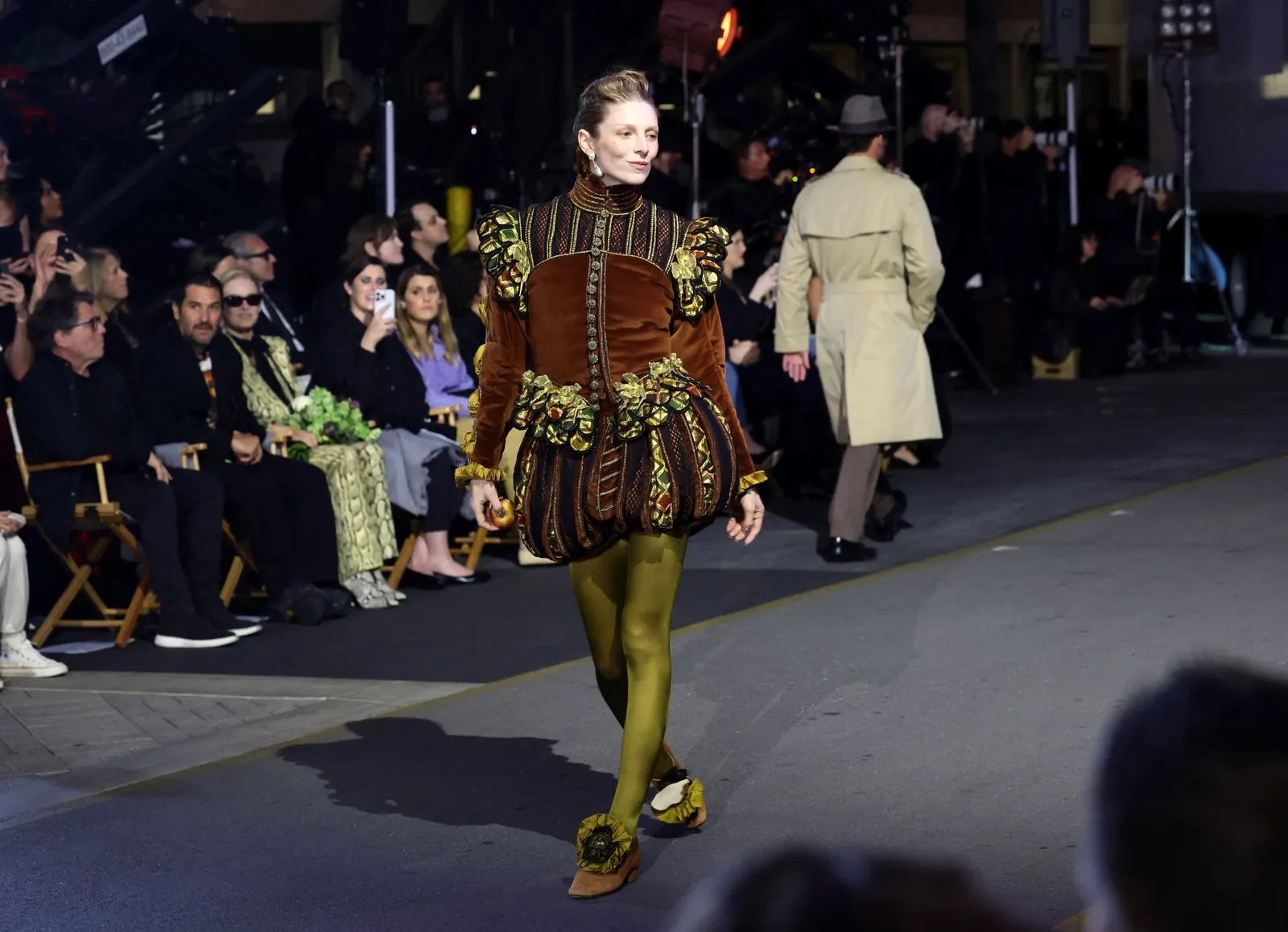
Hunter Schafer in a costume designed by Sandy Powell for Orlando.
In Woolf’s novel, “clothes are but a symbol of something hid deep beneath.” That insight, which she coined as “frock consciousness,” positioned fashion as an instrument of self-expression rather than ornament. Potter’s subversive film, through Powell’s sharp costuming, visualized this with cinematic clarity. Over centuries of shifting silhouettes, Powell uses clothing to chart Orlando’s inner evolution: lace, velvet, and armor marking transitions between social roles and gender constraints. Early in the story, the male Orlando’s bright yellow hose and ruffs assert nobility and masculinity, while in the final scene, the now-female Orlando wears trousers and walks freely into modernity. Through these choices, Powell’s designs translate Woolf’s meditation on the fluidity of self into material form.
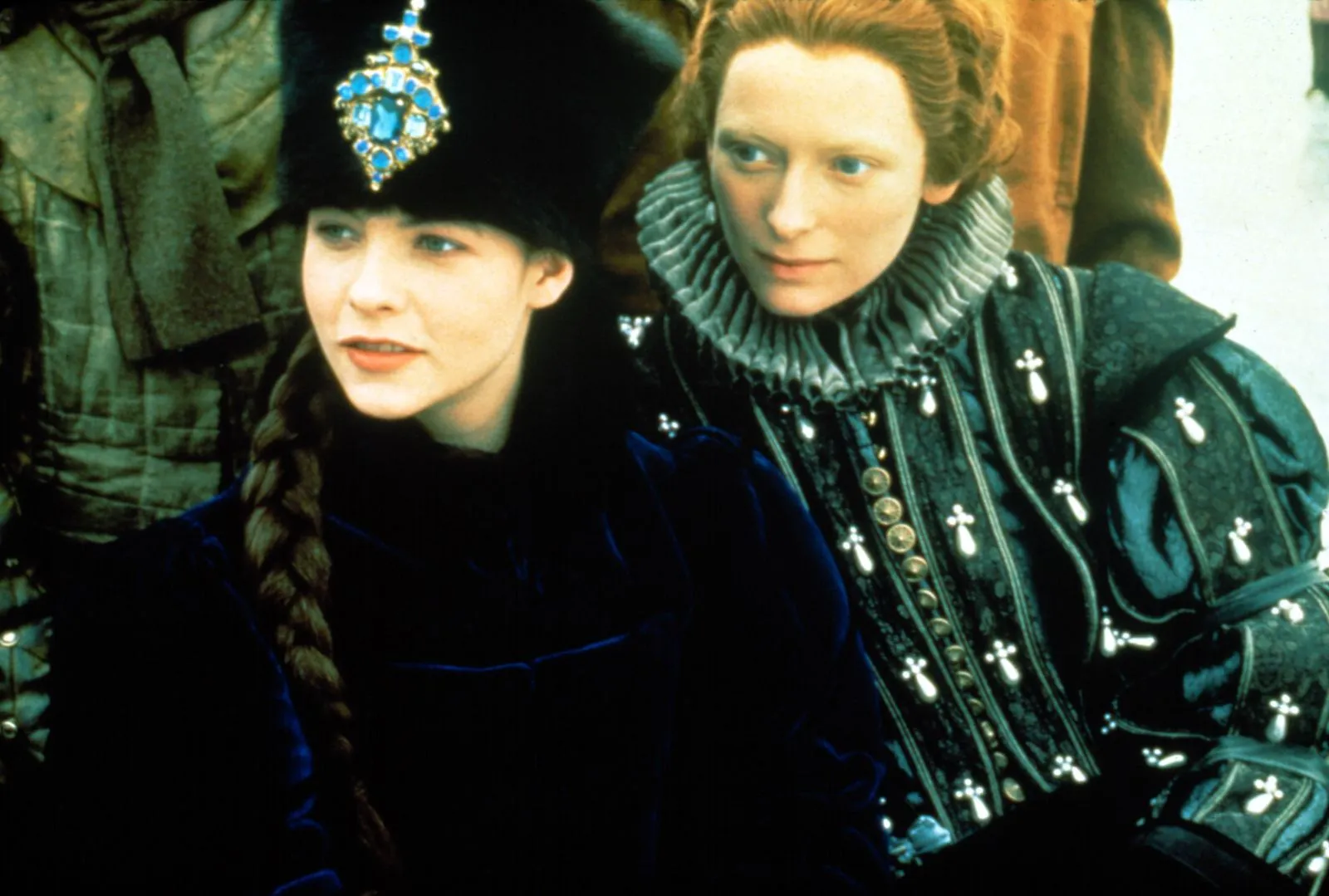
Charlotte Vanlandrey and Tilda Swinton in Orlando.
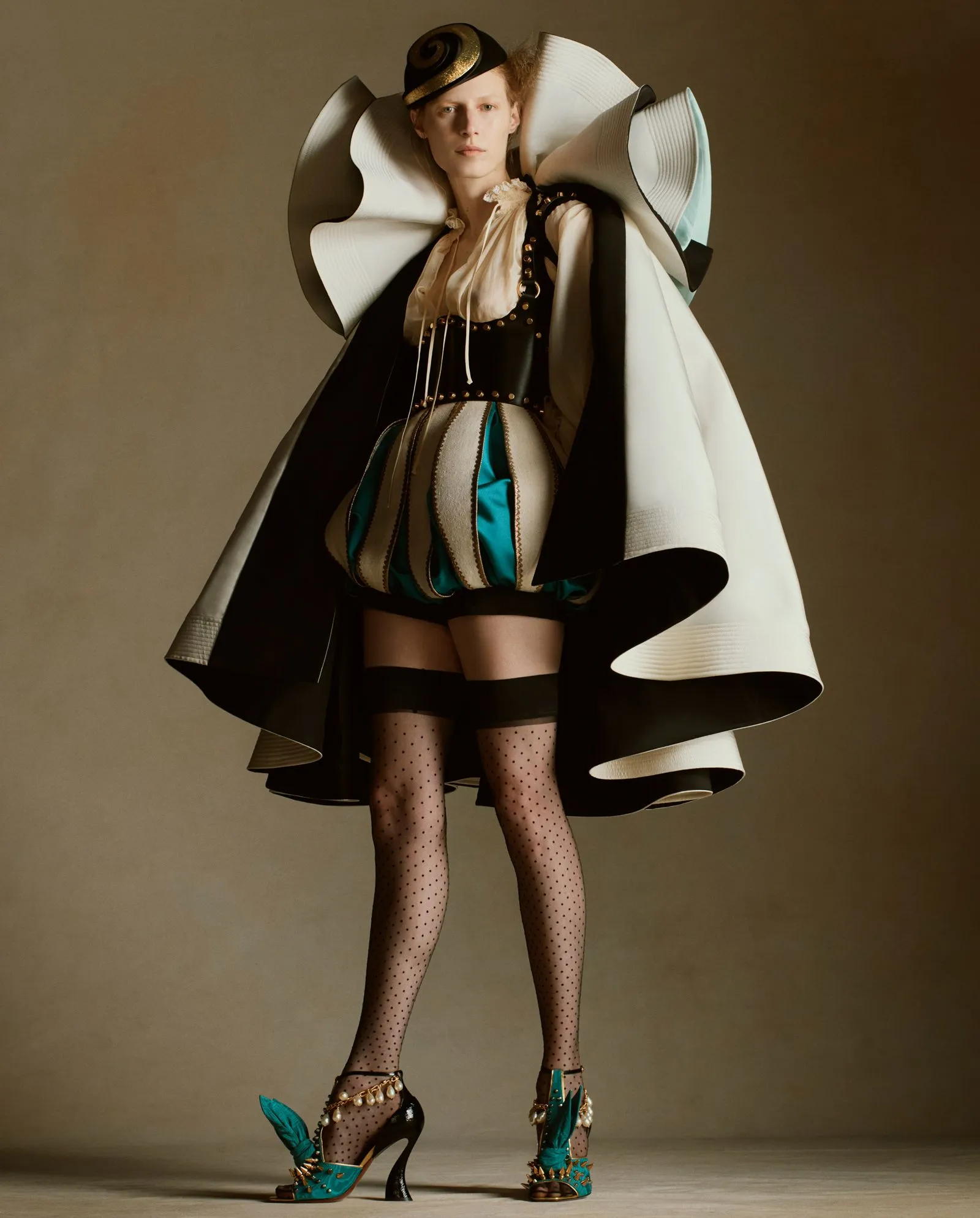
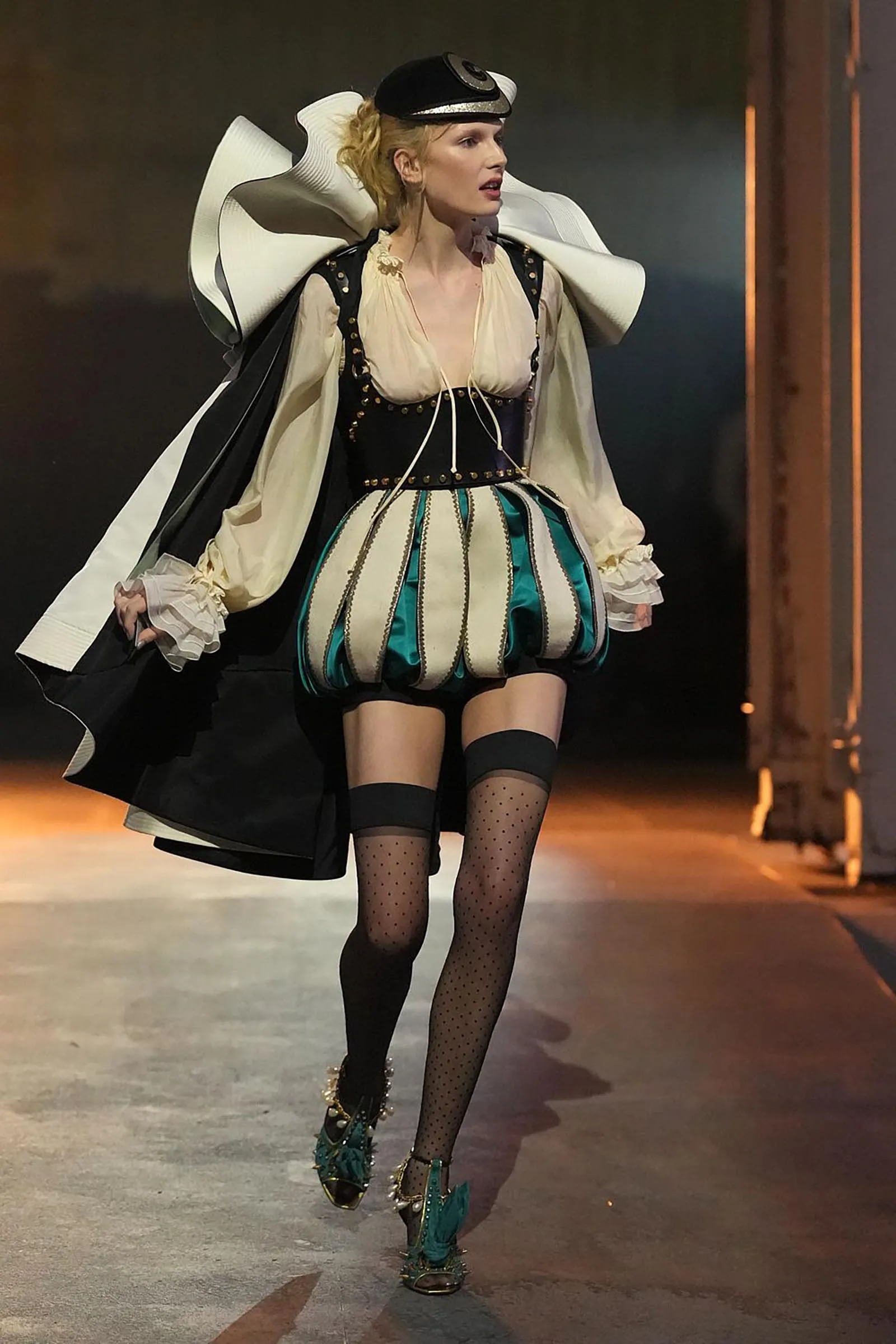
Fashion has since carried Orlando’s spirit across collections and eras. Christopher Bailey’s Burberry Fall 2016 collection revived the film’s romantic androgyny in Elizabethan-esque doublets, bodices, and ruff shirts in jewel tones. Rei Kawakubo interpreted Orlando for the Vienna State Opera in 2019 through sculptural abstraction, while Kim Jones’s debut Fendi couture collection in 2021, and Maria Grazia Chiuri’s penultimate collection for Dior Fall 2025 drew on Woolf’s notions of time and gendered perception. Even the Metropolitan Museum of Art’s 2020 exhibition About Time: Fashion and Duration echoed Orlando’s cyclical sense of history, guided by Woolf’s words as its conceptual narrator.
Powell’s tribute at Vogue World felt less about nostalgia and more about inevitability. Her costume design for Orlando, which earned her her first Oscar nomination, combined historical accuracy with surreal symbolism, establishing her reputation. Today, as fashion increasingly celebrates gender-fluid styles and trans visibility, Powell’s ideas have gained renewed relevance. By bringing Orlando to the runway, she reaffirmed Woolf’s core belief that identity, like fashion, is fluid and constantly evolving.
- Swoon! Hunter Schafer Just Walked the Vogue World 2025 Runway in Tilda Swinton’s Costume From Orlando
- Alex Consani Gives Orlando a Haute Couture Spin at Vogue World 2025: Hollywood
- Louisa Jacobson Models McQueen’s Take on Edward Scissorhands at Vogue World 2025: Hollywood
- Hollywood’s Brightest Stars Flocked to Chateau Marmont for the Vogue World 2025 After-Party
